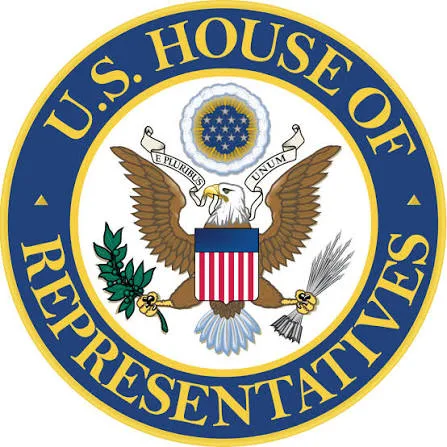
A United States Congressman, Bill Huizenga, has said that the source of funding for Boko Haram and other terrorist groups in Nigeria remains unclear, while expressing concern over ongoing religiously targeted violence in the country.
Huizenga stated this during an interview on Arise News, where he discussed insecurity in Nigeria, religious persecution, and the possible response of the United States government to the worsening violence.
According to him, attacks carried out by radical Islamist groups and Fulani militants have continued to target both Christians and moderate Muslims, describing the situation as coordinated and deliberate.
“What I’m concerned about in particular is the way the Fulani and the radicalized Islamists are attacking both moderate Muslims and Christians,” the Congressman said.
“It’s hard to deny that when you see 200 Christians slaughtered on Christmas Eve a few years ago, it was clearly a coordinated attack. I’ve spoken to people from the affected villages and to religious leaders who have been dealing with this for years.
“They feel targeted. They know that when their homes are invaded or they are attacked in the middle of the night, this is not just some random conflict — they feel deliberately singled out.”
Speaking further, Huizenga reacted to the recent remarks of U.S. President Donald Trump, who had condemned the killings of Christians in Nigeria and hinted at possible U.S. action.
“I, too, was surprised that the president came out that forcefully,” he said.
“I suspect that direct military intervention in Nigeria is not a high priority. But I think he wants to ensure that what he considers genocide — happening specifically against Christians but also affecting others in Nigeria — comes to an end. Instead of military strikes, I believe he would prefer other forms of action.”
The lawmaker ruled out the possibility of an immediate U.S. military response, saying the administration would likely consider non-military approaches such as sanctions and economic pressure.
“I don’t envision a surprise attack or an immediate military response,” he said.
“As we discussed earlier, I would encourage first the use of economic pressure and sanctions on individuals and organizations — that would likely be the most effective approach.
“Frankly, this president has been someone who pursues peace rather than expanding war. I think he would be very selective before taking any military action.”
He also noted that the ongoing U.S. government shutdown had hindered congressional activity, including committee hearings that could spotlight Nigeria’s security crisis.
“With our government shutdown here in the United States for over 40 days, it has caused real problems internally, and we’re still dealing with that. Our immediate priority will be reopening government operations and getting back to full functionality,” Huizenga said.
“That doesn’t mean we’ll stop discussing or acting on international issues like this, but for now, the focus will likely be on domestic matters. One consequence of the shutdown is that we haven’t been able to hold committee hearings — which are essential to raising attention on these kinds of crises.”
He emphasized that sanctions and financial restrictions could be powerful tools in disrupting terrorist operations.
“Once the government is reopened, we can resume those hearings and other necessary actions. Sanctions, for instance, can effectively cut off the flow of money and restrict travel,” he explained.
Huizenga concluded by admitting that the U.S. still lacks clarity on who exactly is bankrolling terrorist groups in Nigeria.
“We don’t yet know exactly who is financing these operations — whether from the Fulani groups or Boko Haram — but applying economic pressure and restricting their financial movements will definitely have an impact,” he said.
“I want us to take this issue seriously because I’m not convinced that the Nigerian government has taken it seriously enough.”
The Congressman’s remarks come amid renewed debate over the US position on Nigeria’s security crisis, following President Trump’s recent comments condemning the mass killings of Christians in Northern Nigeria.
 Premium News
Premium News